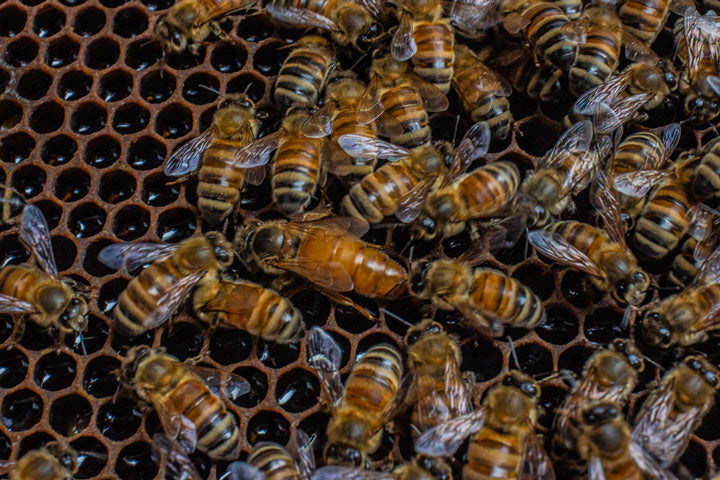World Bee Day is May 20, and it’s an opportunity to honor and learn more about nature’s great unsung heroes. The humble honey bee is well known but not always well understood. Most of us know about honey, hives, stings, and queens, but there’s so much more to these fascinating little pollinators:
- Honeybees pollinate up to 80% of America's insect crops, over $15 billion worth of crops each year.
- One bee colony can single-handedly pollinate 300 million flowers every day.
- The honey bee is the only insect on the planet that makes food eaten by humans.
- Worker honey bees live at most six months, but the queen lives 2-3 years.
- Queens and workers are genetically identical but phenotypically distinct. Their diet is what causes them to be different.
- The stinger is part of the reproductive system and is used to lay eggs; as a result, only female bees can sting.
- Male honey bees, or drones, are larger than workers and contribute nothing to the hive beyond mating.
- The queen can lay 2,000 eggs every day. Fertilized eggs become workers, unfertilized eggs become drones.
- Antarctica is the one and only continent on Earth that has no bees of any kind.
- Plants that make caffeine ward off pests but attract pollinators; they also help bees remember a flower's location.
- Bees learn the shortest possible route between flowers even if they discover them out of order.
- Crystallization doesn't mean your honey is spoiled; in fact, it means it's natural and unprocessed. Well-stored, uncontaminated honey will last virtually forever.
- To fuel one full flight around the world, a bee would need an ounce of honey.
- There are about 20,000 species of bee, but only a small percentage make honey.
- If two or more queens hatch at the same time, they will fight to the death.
To learn more about what BEYOND is doing to support the world’s pollinators and how you can help, check out our Global Responsibility page.






0 Comments